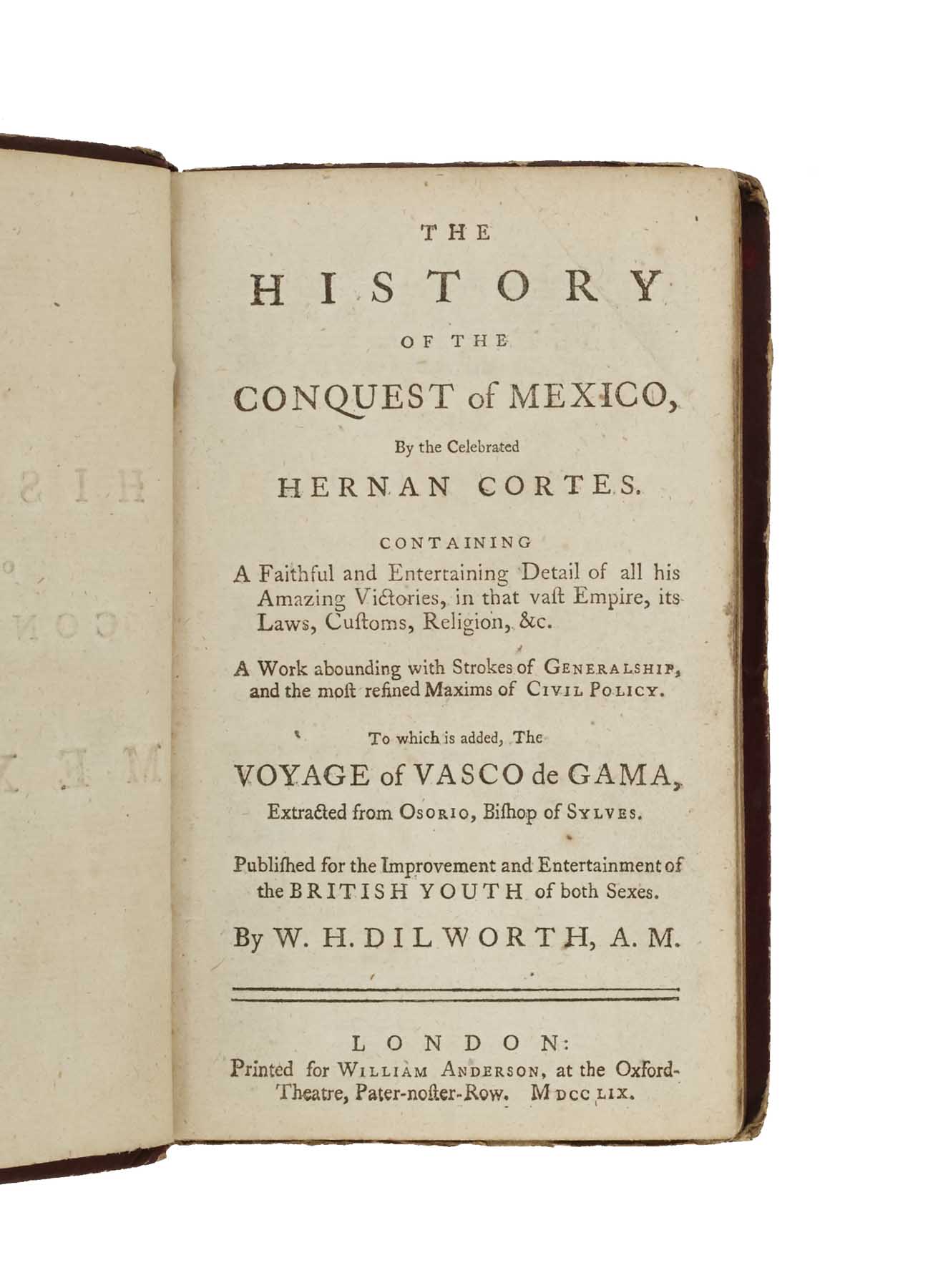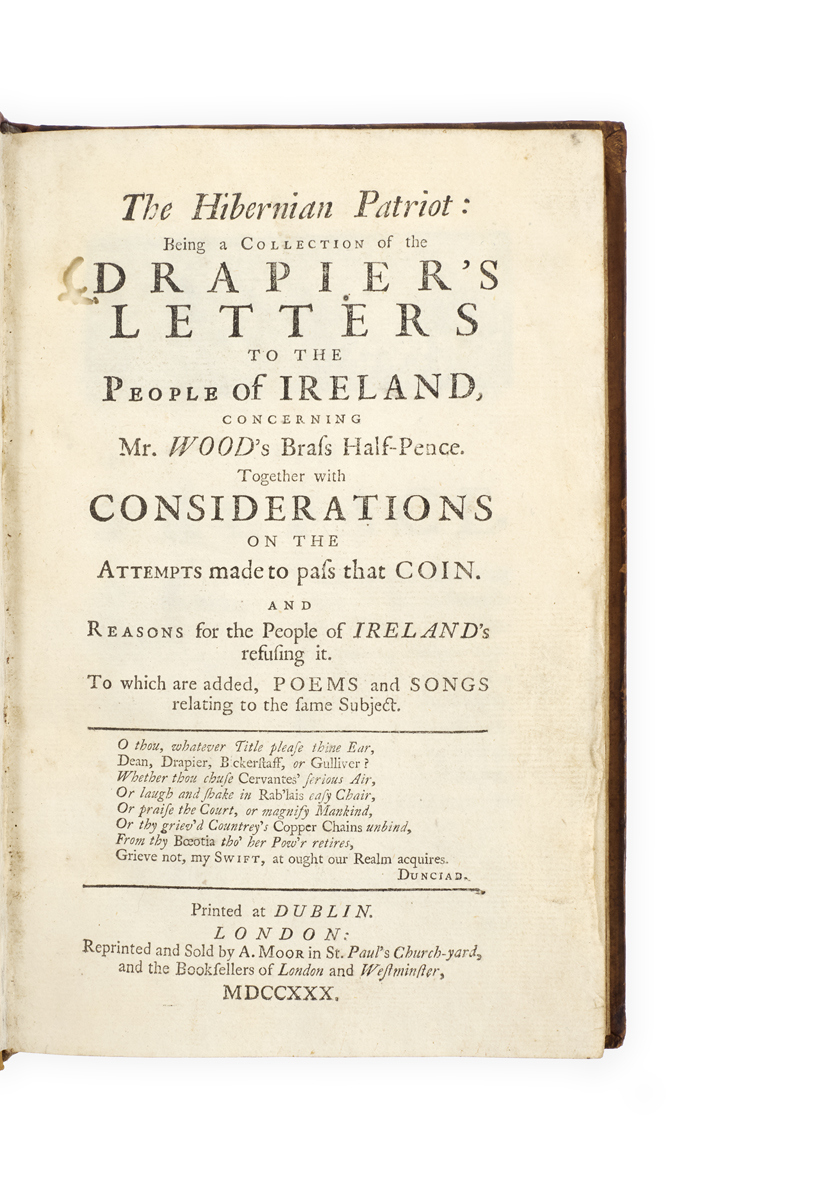A PRINCE OF THIEVES
[CARTOUCHE.]
The Life and Actions of Lewis Dominique Cartouche: who was broke alive upon the Wheel at Paris, Nov. 28. 1721. N.S. Relating at large his remarkable Adventures, desperate Enterprises, and various Escapes. With an Account of his Behaviour under Sentence, and upon the Scaffold; and the Manner of his Execution. Translated from the French.
London: Printed for J. Roberts … 1722.
8vo., pp. 88; modern boards; a very good copy.
Added to your basket:
The Life and Actions of Lewis Dominique Cartouche: who was broke alive upon the Wheel at Paris, Nov. 28. 1721. N.S. Relating at large his remarkable Adventures, desperate Enterprises, and various Escapes. With an Account of his Behaviour under Sentence, and upon the Scaffold; and the Manner of his Execution. Translated from the French.
First edition in English, published in the same year as the French original. Louis Dominique Bourguignon, alias ‘Cartouche’ (1693-1721), began his life of crime stealing fruit from women at the gates of his Jesuit school and books from his wealthy classmates. To avoid punishment for theft he fled Paris, and a foray among the gypsies taught him ‘all the Cant that the Thieves use among themselves; and how to conceal Thefts after he had committed them’. Once more in Paris he worked as a pick-pocket, marrying into a family of thieves, then as an informant to the Lt.-Gen. of Police, Marc René de Voyer, marquis d’Argenson: ‘None of his old Comrades escaped, who had ever affronted or provoked him’. A brief and accidental career in the army was cut short by the Peace of Utrecht in 1719, and Cartouche recruited from among his newly unemployed companions an underworld ‘Confederacy’ with its own strict ‘Laws’. Its 200 members comprised burglars, pickpockets, fences and prostitutes, and ‘in a little time nothing else was talk’d of in Paris, but Robberies in the Streets, Murders, and Assassinations upon the Pont Neuf.’ Forced into hiding by his increasing notoriety, he slept in a different bed every night, until his final betrayal and arrest in 1721. Ballads were composed, plays improvised, portraits engraved, and all Paris visited him in prison – ‘there was a certain je ne scay quoy, either of Awe or Majesty in his Countenance’ – before he was broken on the wheel.
Published in the same year as Moll Flanders and Col. Jacque, this work exploits a similar ready market for the lives of rogues. A now-discredited attribution of this translation to Defoe was inevitable. On its own merits, the present Life is nevertheless fascinating, highly readable and not without moments worthy of Defoe: among his criminal band, Cartouche is as an ‘Arbitrary Prince’ – ‘he rewarded or punished them according to their deserts. These Acts of Sovereign Authority made him fancy himself a King indeed. He had Mistresses and Flatterers, he had Money and Subjects; he made himself enemies by his Ambition; and like a King, he encamped upon his Enemies lands, that he might not be chargeable to his own Subjects.’

